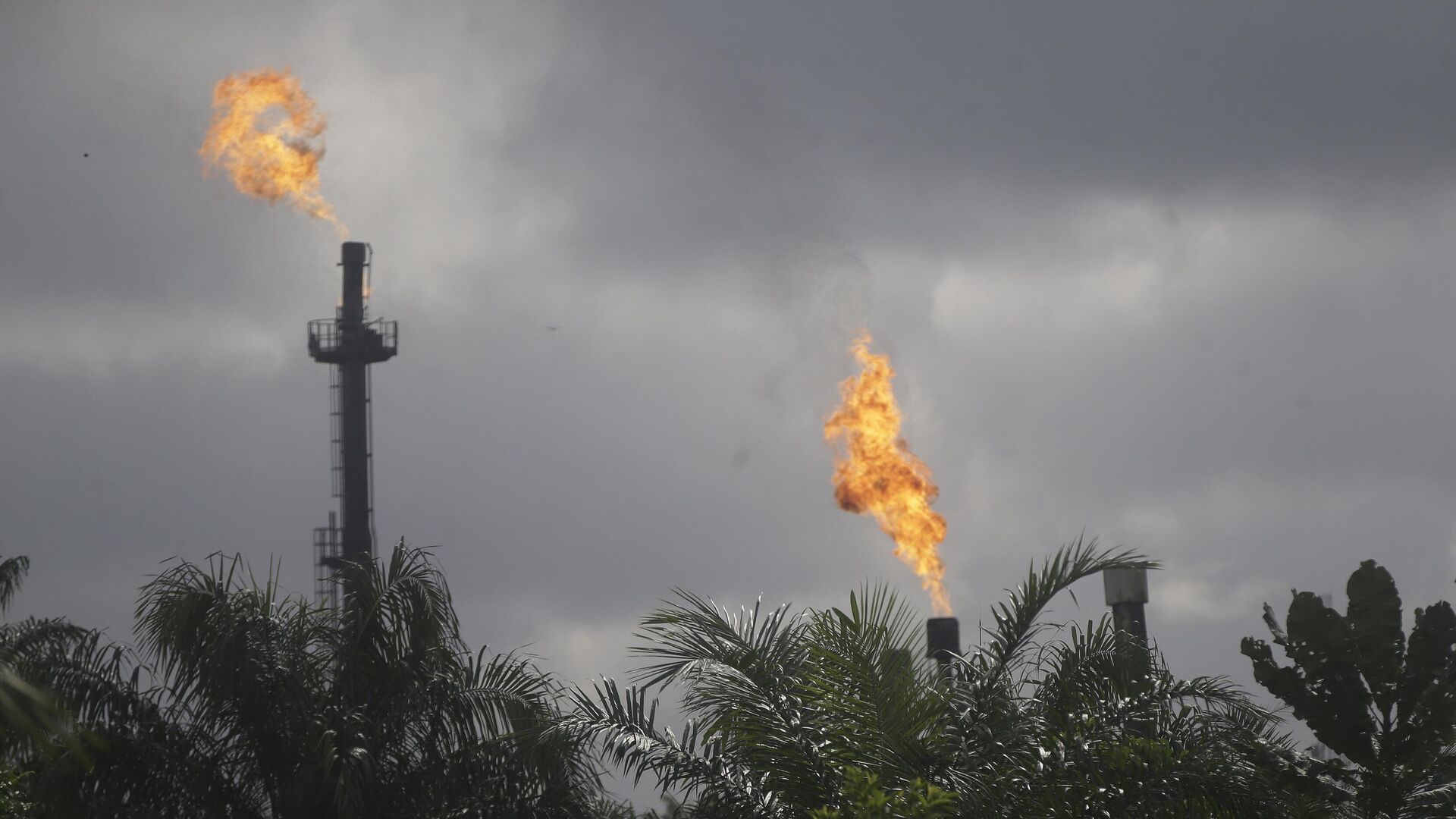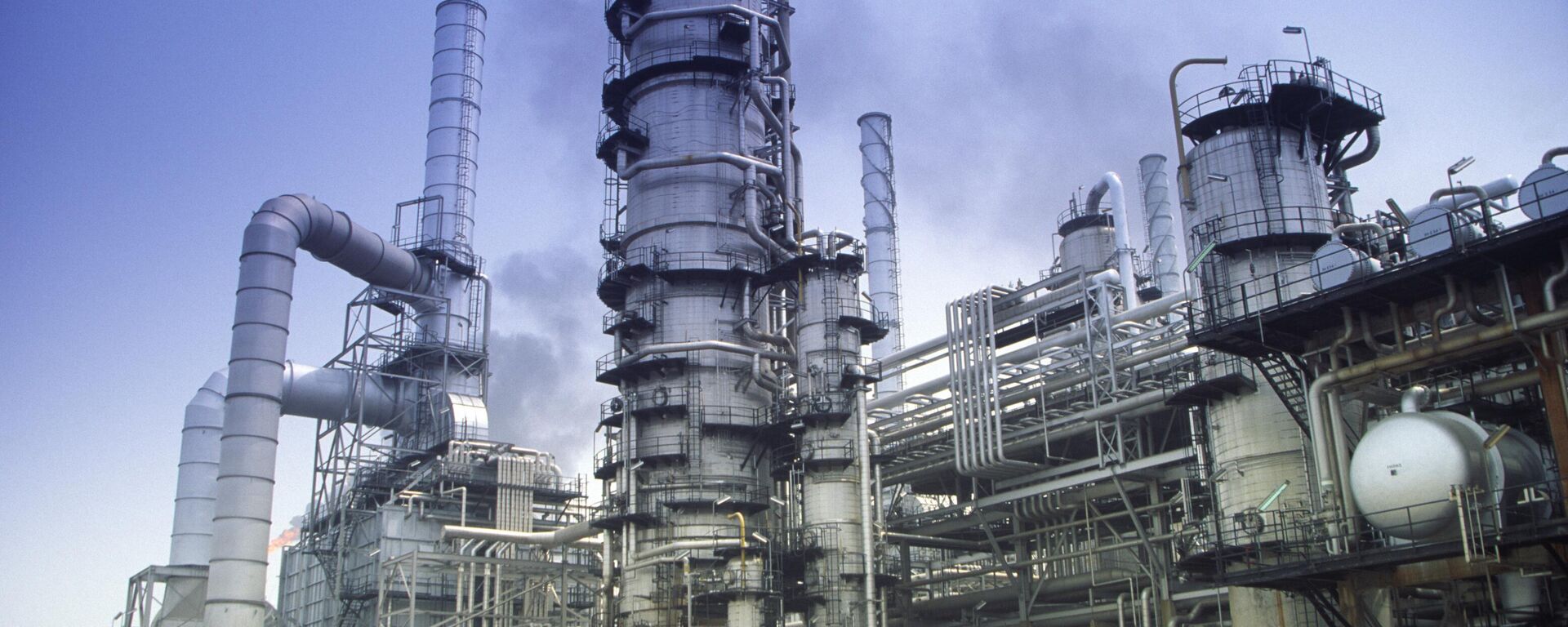https://en.sputniknews.africa/20250101/nigeria-mandates-low-carbon-emissions-for-new-oil-licenses-1069985680.html
Nigeria Mandates Low-Carbon Emissions for New Oil Licenses
Nigeria Mandates Low-Carbon Emissions for New Oil Licenses
Sputnik Africa
Nigeria has set a target to achieve net-zero greenhouse gas emissions by 2060. This commitment was made at COP26 in Glasgow and is part of Nigeria's broader... 01.01.2025, Sputnik Africa
2025-01-01T13:28+0100
2025-01-01T13:28+0100
2025-01-01T13:28+0100
sub-saharan africa
nigeria
oil
refinery
industry
industrialization
gas
liquefied natural gas (lng)
west africa
carbon credits
https://cdn1.img.sputniknews.africa/img/07e7/0c/1b/1064331165_0:0:3326:1872_1920x0_80_0_0_55912634d5e7a2953d67ea3fc3e4d4d5.jpg
Nigeria's Upstream Petroleum Regulatory Commission (NUPRC) announced that, effective January 1, 2025, all applicants for oil licenses and permits must demonstrate a commitment to low-carbon emissions and renewable energy.The new policy, guided by a newly released Upstream Petroleum Decarbonization Template (UPDT), aligns with Africa's largest oil producer's net-zero emissions target of 2060.Applicants will be required to provide evidence of methane management programs (including leak detection and repair), energy-efficient technologies, and the integration of renewable energy sources into their projects.
https://en.sputniknews.africa/20241231/nigerias-warri-refinery-partially-resumes-operations-after-decade-long-shutdown-1069972412.html
nigeria
west africa
Sputnik Africa
feedback@sputniknews.com
+74956456601
MIA „Rossiya Segodnya“
2025
Muhammad Nooh Osman
https://cdn1.img.sputniknews.africa/img/07e7/04/0a/1058467512_0:0:1280:1280_100x100_80_0_0_ec723833bcbfcaed2e21952965ad99e4.jpg
Muhammad Nooh Osman
https://cdn1.img.sputniknews.africa/img/07e7/04/0a/1058467512_0:0:1280:1280_100x100_80_0_0_ec723833bcbfcaed2e21952965ad99e4.jpg
News
en_EN
Sputnik Africa
feedback@sputniknews.com
+74956456601
MIA „Rossiya Segodnya“
Sputnik Africa
feedback@sputniknews.com
+74956456601
MIA „Rossiya Segodnya“
Muhammad Nooh Osman
https://cdn1.img.sputniknews.africa/img/07e7/04/0a/1058467512_0:0:1280:1280_100x100_80_0_0_ec723833bcbfcaed2e21952965ad99e4.jpg
nigeria, oil, refinery, industry, industrialization, gas, liquefied natural gas (lng), west africa, carbon credits, carbon, climate, climate change
nigeria, oil, refinery, industry, industrialization, gas, liquefied natural gas (lng), west africa, carbon credits, carbon, climate, climate change
Nigeria Mandates Low-Carbon Emissions for New Oil Licenses
Muhammad Nooh Osman
Writer/Editor
Nigeria has set a target to achieve net-zero greenhouse gas emissions by 2060. This commitment was made at COP26 in Glasgow and is part of Nigeria's broader climate change strategy. The country has also passed the Climate Change Act in 2021, which provides a framework for achieving low greenhouse gas emissions and sustainable growth.



